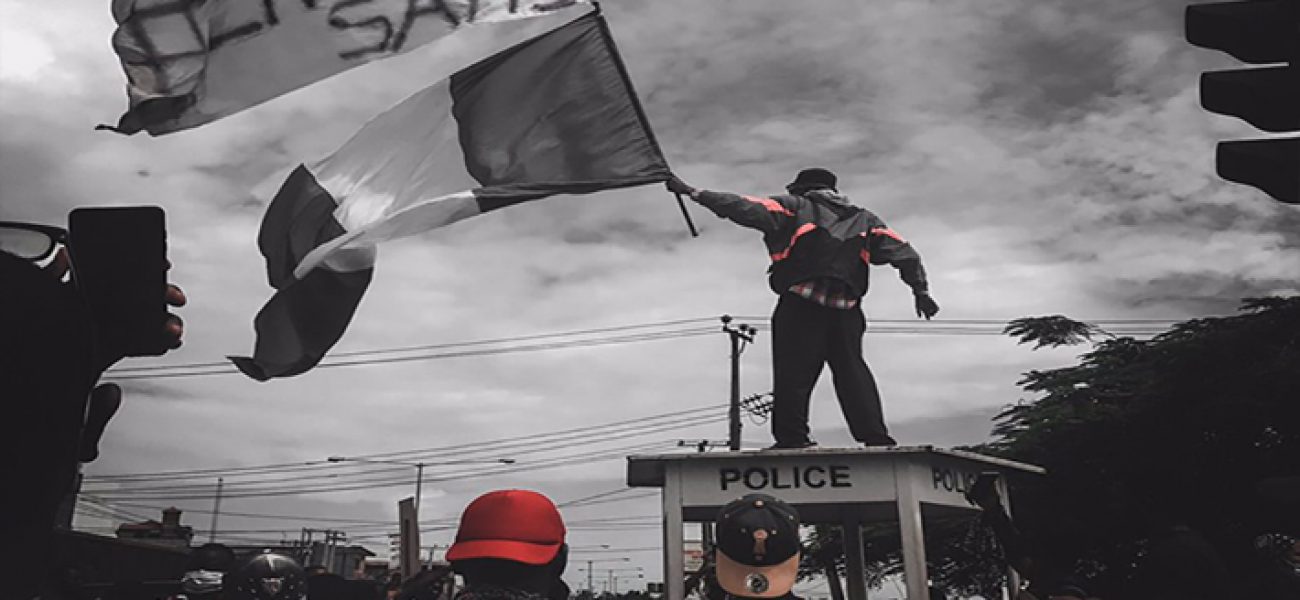Peaceful protests calling for an end to the Federal Special Anti-Robbery Squad (FSARS), State SARS and police brutality in general have continued to gain momentum in several States across Nigeria. These demonstrations have lingered despite the announcement by the Inspector General of Police, IGP Mohammed Adamu that the unit has been dissolved. According to the IGP, all officers and men of the unit will be redeployed to other police commands, formations and units. He added that a new policing arrangement for tackling armed robbery and other violent crimes will be unveiled. Further, he stated that a Citizens and Strategic Stakeholders forum will be launched to provide an avenue for interaction between the police and citizens. The IGP also stated that an investigative team will be set up to deal with reports of crimes committed against citizens, with a view to bringing the culprits to book.
Protesters, however seemed to want more in terms of immediate implementation of the disbandment and a total reform of the Nigeria Police Force, as all the measures stated to have been taken to end the activities of SARS in the past did not translate to tangible change. Also, they demanded the release of protesters who were arrested and detained by the police in the course of the protests. Following this, President Muhammadu Buhari on Monday, October 12, assured Nigerians of police reform, stating that the dissolution of SARS is the first step to extensive police reforms. However, while the President was giving these assurances, the police was making use of live bullets, tear gas and water cannons to disperse protesters, killing and inflicting injuries on citizens especially in Lagos State, while harassing and taking others into custody. The fact that Nigerian citizens cannot freely exercise their constitutionally guaranteed rights to expression and peaceful assembly further amplifies the need for immediate police reform.
The government has however, accepted the demands of the ENDSARS movement, to release all arrested protesters, improve police welfare, carry out psychological evaluation and re-training of all disbanded SARS officers before redeployment, compensate the families of all deceased victims of police brutality and prosecute perpetrators. This is evidenced by an announcement by the Inspector General of Police, ordering all personnel of the disbanded unit to report to the Force Headquarters in Abuja for debriefing and medical examination.
Further, the committee jointly set up by the IGP and the National Human Rights Commission (NHRC) deliberated extensively and reached the following resolutions:
- Police reform proposals will be based on the 1999 Nigerian Constitution (as amended), the Nigeria Police Act, 2020 and other relevant laws.
- The IGP should order all State Police Commands to halt the use of force against protesters.
- Unconditional release of arrested protesters and citizens.
- Initiate open communication and outreach to citizens to establish trust and confidence.
- Establishment of an independent investigation panel by the NHRC within the next one week, to look into human rights violations by SARS and the entire Nigeria Police.
- Psychological evaluation, training and re-training of disbanded SARS officials before re-deployment.
The IGP also announced that a new Special Weapons and Tactics (SWAT) Team will be taking over the responsibilities of the defunct SARS, and prospective members of the unit are expected to undergo medical examination and training.

